Premium Only Content
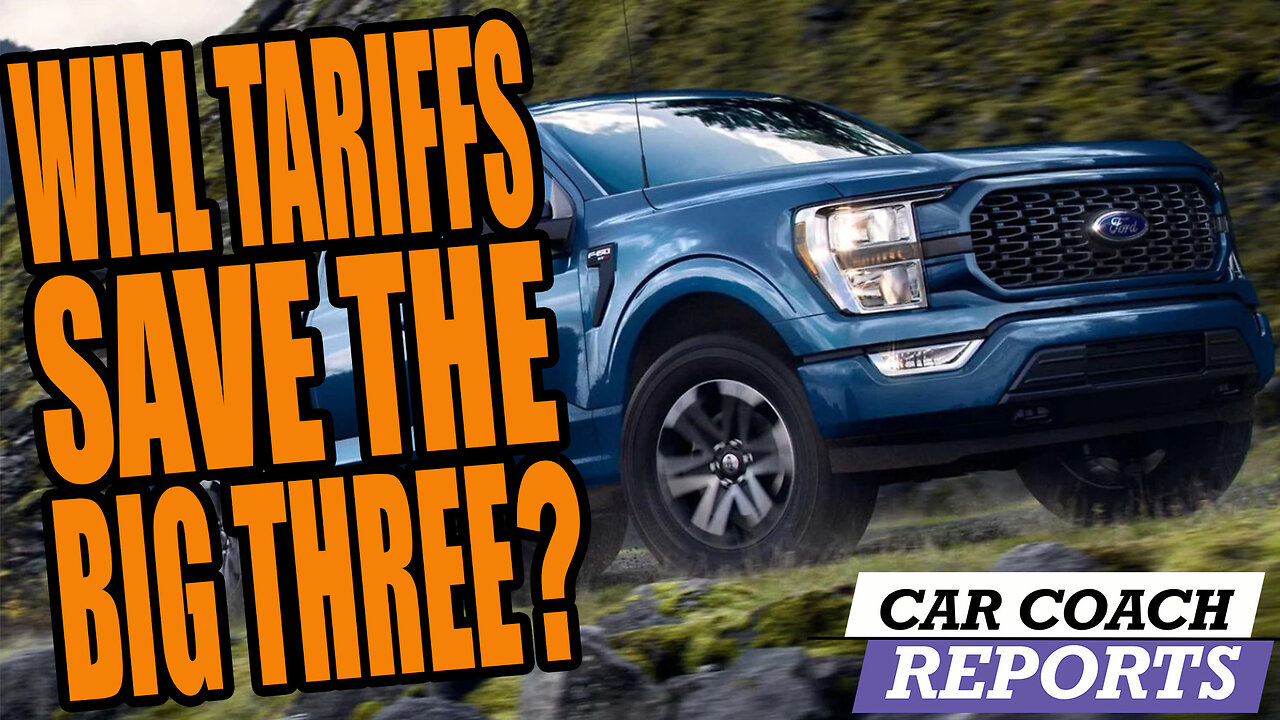
Will Trump's Tariffs Kill the Electric Car Industry?
As the automotive industry braces for potential policy shifts under a Trump administration, two leading experts, Lauren Fix, founder of Car Coach Reports, and Tom Maoli, CEO of Celebrity Motor Car Company, join us on today’s episode of Inside Automotive. Both Fix and Maoli offer insights into tariffs, electric vehicle mandates, and how these changes could reshape the industry.
During the conversation, Fix and Maoli explored the possible influence of Donald Trump’s return to the White House, particularly regarding trade tariffs and electric vehicle (EV) policies on the industry.
For instance, Fix criticized the Biden administration’s strict environmental regulations, including the proposed ban on diesel trucks and RVs by 2036, calling them “unsustainable” and harmful to jobs and economic stability. She also highlighted how California’s stringent environmental waivers and mandates for all-electric vehicles by 2035 could disrupt national manufacturing processes.
Maoli echoed Fix’s concerns, pointing out that mandating EV adoption without sufficient infrastructure is “absolute insanity.” He believes Trump’s policies would aim to level the playing field by imposing tariffs on imports, potentially reshaping manufacturing back to the U.S. While acknowledging that tariffs may result in short-term inflation, Maoli argued they would create long-term economic benefits by reviving domestic production.
Tariffs were another key topic. Maoli noted that approximately 50% of auto parts are sourced overseas, and while tariffs may initially drive up costs, they could help level the playing field and encourage domestic manufacturing. Meanwhile, Fix pointed to Germany as an example, where Chinese car manufacturers are disrupting the market with government-subsidized vehicles priced $20,000 lower than competitors. She argued that similar tariffs in the U.S. would protect jobs and create fair competition.
On EV tax credits, both guests supported the removal of the $7,500 subsidy. Fix argued that eliminating subsidies would encourage market-driven innovation and reduce dependence on government intervention. She noted Tesla’s advantage in this space but stressed the importance of customer-driven manufacturing, citing Hyundai’s approach of prioritizing consumer preferences.
Overall, their viewpoints highlight both the struggles and opportunities facing the industry, which urges stakeholders to collaborate in navigating the complexities of an ever-changing market. As both experts emphasize, staying informed and proactive will be vital for overcoming these challenges and securing future success.
Thanks for watching!
➡️ Looking for car reviews? https://youtube.com/@car-smarts
➡️ Buy me a cup of coffee: https://www.buymeacoffee.com/laurenfix
➡️ Listen to the Total Car Score Podcast: https://www.revolverpodcasts.com/shows/total-car-score/
➡️ Social media:
X: https://twitter.com/laurenfix
FB: https://www.facebook.com/Lauren.Fix.The.Car.Coach
IG: https://www.instagram.com/laurenfix/
Gettr: https://gettr.com/user/laurenfix
Rumble: https://rumble.com/c/c-625957
Gab: https://gab.com/LaurenFix
Truth: https://truthsocial.com/@laurenfix
Substack: https://carcoachreports.substack.com/
➡️ Check out our website: https://www.CarCoachReports.com
➡️ Get the Book: Lauren Fix's Guide to Loving Your Car: https://amzn.to/3ifDi3j
SUPPORT INDEPENDENT CREATORS
The Fix Family has taken generations of passion, pride, & automotive expertise to create unique auto products & books that will keep you, your family, & your cars safer and running better for years to come.
Music License: Epidemic Sound
©Automotive Aspects, Inc., 2025. All Rights Reserved.
#new @celebritymotorcars8354 #tariffs #trump #car @CarBizToday
-
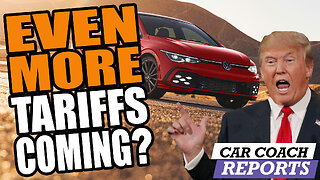 7:45
7:45
Car Coach Reports
4 days agoTariffs vs Free Trade Which is BETTER for American Auto?
732 -
 9:32
9:32
CarlCrusher
1 day agoTic Tac UFO | Hurricane, Utah 2025 | Carl Crusher Psionic Contact Method
2661 -
 13:33
13:33
IsaacButterfield
1 day ago $0.15 earnedLEAVE VEGAN BOOTY ALONE!
1.02K4 -
 2:15:13
2:15:13
Side Scrollers Podcast
18 hours agoNintendo BRICKS Switch 2s, Roblox ICE Protest Update, Man PROPOSES to AI | Side Scrollers Live
2.53K6 -
 56:50
56:50
SinCityCrypto
17 hours ago $0.06 earnedBitcoin Consolidates as Ai Crypto Takes Off!
932 -
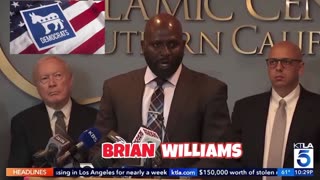 9:41
9:41
Nate The Lawyer
2 days ago $0.78 earnedL.A.'s BLM Deputy Mayor Pleads GUILTY To SWATTING City Hall!
79417 -
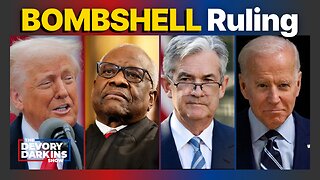 20:17
20:17
DeVory Darkins
1 day ago $4.73 earnedSCOTUS drops BOMBSHELL ruling as Trump SLAMS Jerome Powell
9.18K55 -
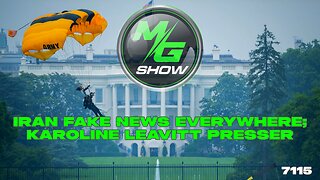 2:09:02
2:09:02
MG Show
18 hours agoIran Fake News Everywhere; Karoline Leavitt Presser
10.1K25 -
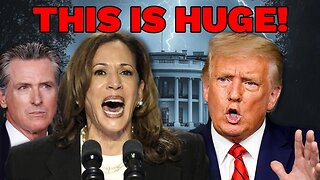 31:09
31:09
Stephen Gardner
1 day ago🔥Trump JUST PROVED Gavin Newsom NOT FIT for president!
16K31 -
 LIVE
LIVE
Lofi Girl
2 years agoSynthwave Radio 🌌 - beats to chill/game to
422 watching